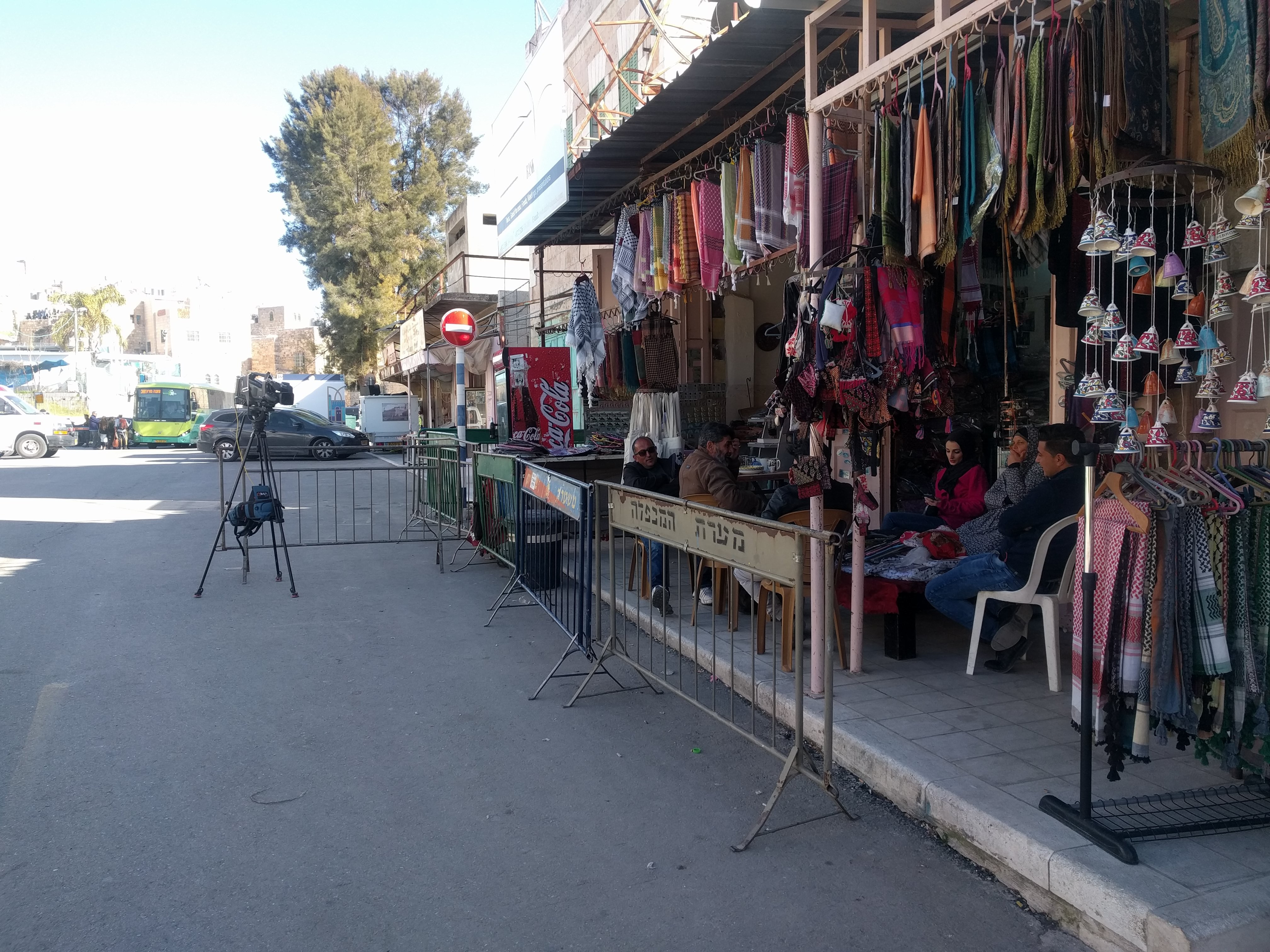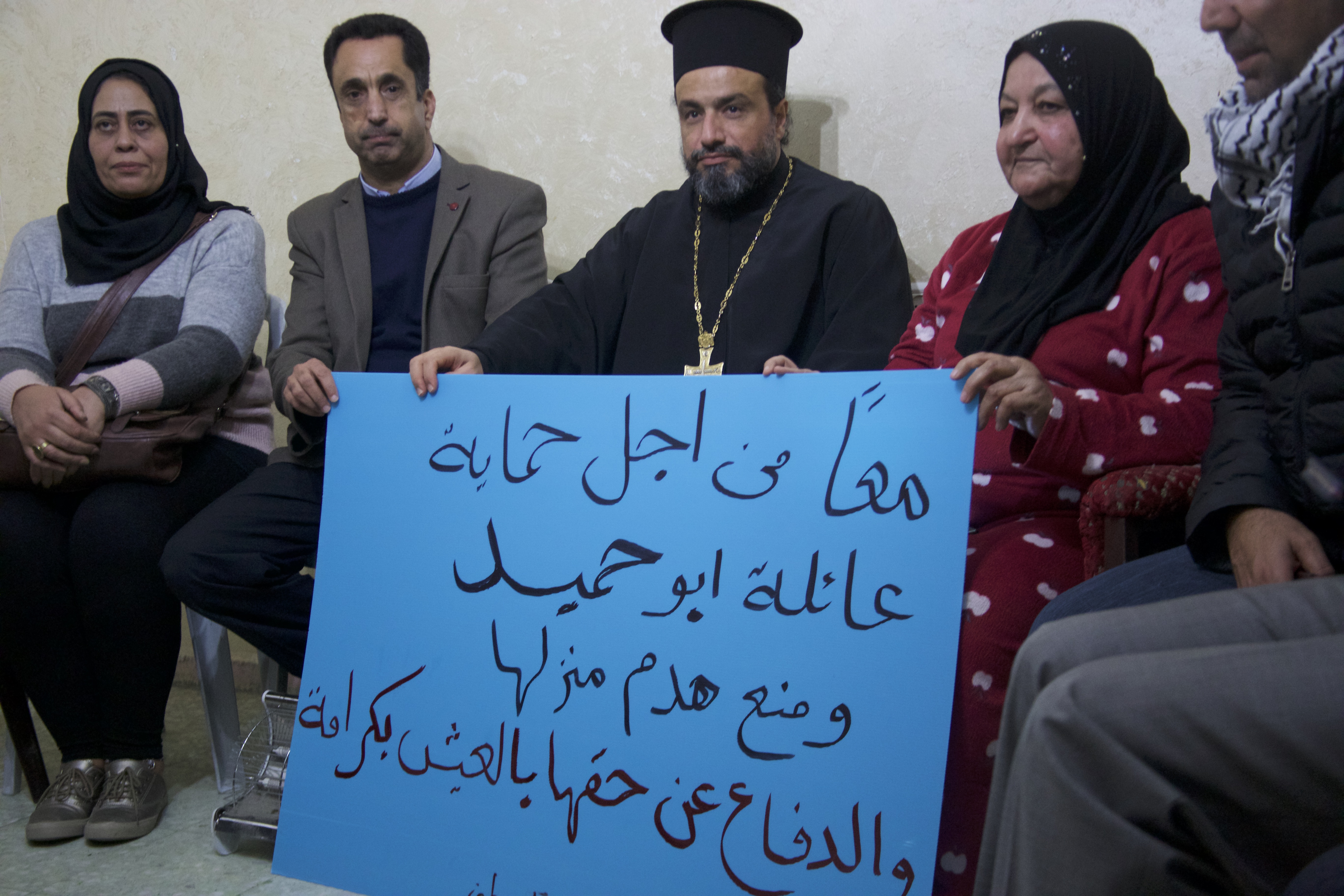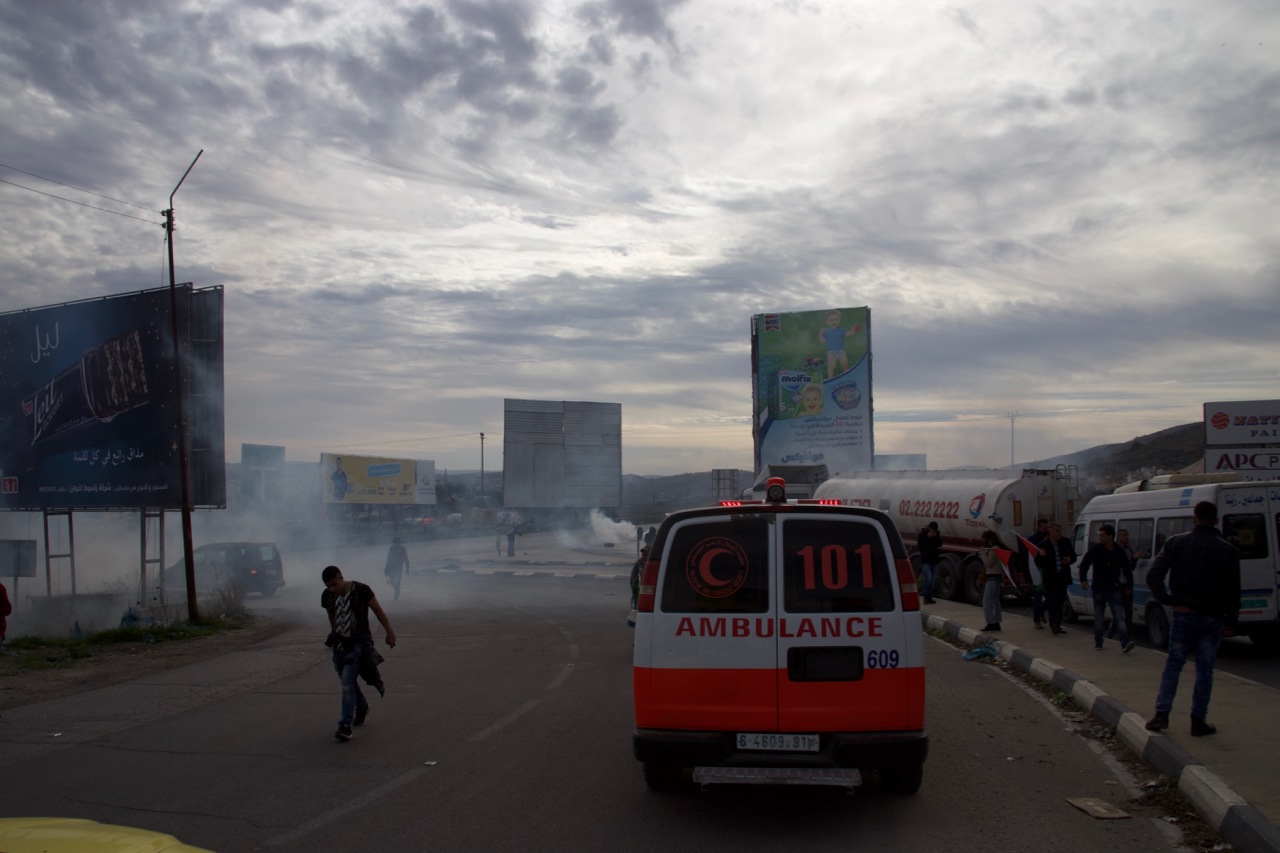Tag: occupation
-
“Hundred Million Dollar Home” Hebron Shop Keeper Punished for Resistance to Occupation
2nd February 2019 | International Solidarity Movement, Al-Khalil team | Hebron, occupied Palestine Today, our good friend Abdulraouf Al-Mohtaseb’s, the famous owner of the 100 Million Dollar home , had his shop enclosed by steel barricades. We condemn this blatant act of aggression by the IDF against shop owners in the Old City of Al-Khalil. This…
-
Abu Humaid’s Family Home Issued Demolition Notice
The Abu Humaid family from the Al Amari refugee camp held a press conference in defiance of the notification for the demolition of their 4 story home. The Israeli Forces want to destroy the Al Amari building because of their long history of resistance against the Occupation.
-
Demonstrators in Nablus met with violence by the Israeli Occupation forces
Protestors marched from the city center of Nablus to the Huwwari Checkpoint only to be met with brute force by the Israeli Occupation Forces.



